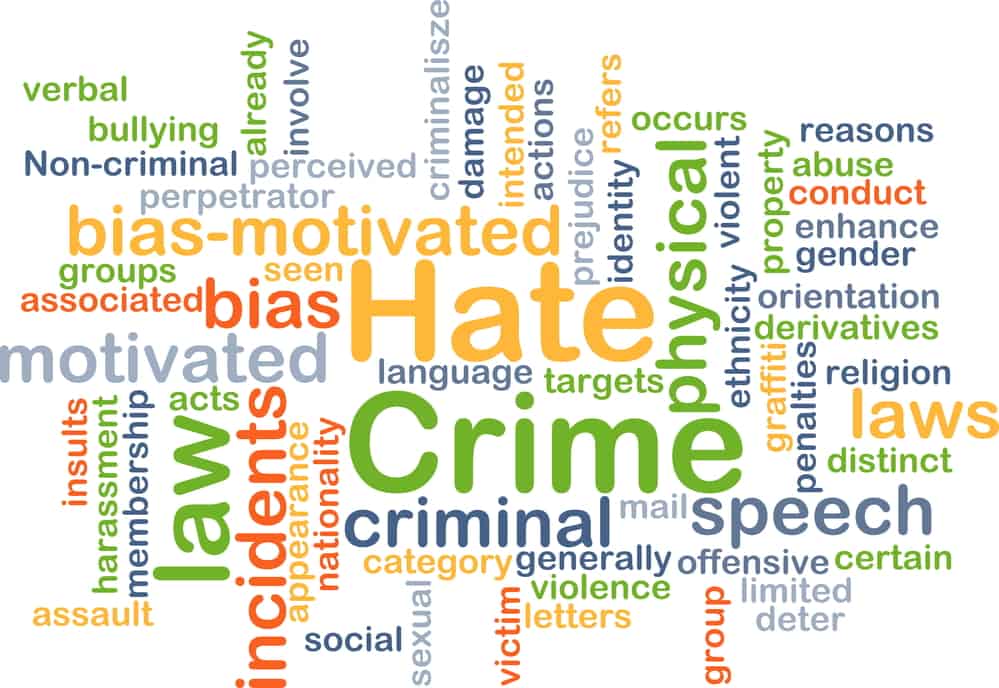Crimes are judged and sentenced based not only on the extent of the crime but also on the motives of the person who committed it. Among the most severe crimes, someone can be convicted of count hate crimes. Thus, it is crucial to understand what a hate crime is, how it is categorized, and what can be done to reduce such criminal acts. Many influential people are actively drawing attention to hate crimes in the face of the current civil unrest in the United States and worldwide. Among them are concerned scholars and activists, and celebrities, such as Paris Hilton or Selena Gomez.
Renewed Attention to Hate Crimes in the Wake of Civil Unrest
During the past few years, a lot of attention has been drawn to social justice issues worldwide. Currently, protests are taking place across the globe due to discrimination that continues to persist. For example, the United States has received a lot of attention recently due to the shootings of unarmed individuals of African American descent at police officers’ hands. In a country that built its foundation on racism, this is an issue that still very much exists. Even though legislation is in place to protect these individuals, this does not seem to be enough to deter some people from committing such heinous acts in the form of hate crime laws. When law enforcement officers appear to be able to act with impunity, this problem only worsens. What is a hate crime, and how are hate crime laws enforced?
The Definition of a Hate Crime
Hate crimes and bias laws can vary from state-to-state. In general, a hate crime is categorized as such if a crime has been committed against an individual due to the victim’s:
- Color
- Ethnicity (or perceived ethnicity)
- Religion (or perceived religion)
- Gender
- Gender Identity
- Sexual Orientation
- Disability (or perceived disability)
- National Origin or Ancestry
Any crime committed based on one of the factors above could be subjected to state or federal hate-crime statutes. Besides, some states also protect people based on their political affiliation.
What Do Hate Crime Laws Prohibit?
Similar to other laws, hate crime laws come in many shapes and forms. Some of the most common situations in which hate crime laws might be applied are as follows:
- Hate crime laws have been put in place to protect institutional targets. For example, someone commits a crime by vandalizing or destroying a house of religion. In that case, this could be deemed a hate crime if it could be proven that the building was targeted specifically because it is a house of worship.
- Hate crime laws have also been put in place to protect people who are members of a specific group. For example, if a particular group of people has been targeted because they are immigrants from another country, this could be charged under a hate crime statute.
- Hate crime laws have also been put in place to enhance penalties for an underlying crime. For example, someone could be charged with arson if they burn down a building. However, if they burnt down that building because it was a house of worship for a particular religion, the sentence could be sharpened.
These are just a few of the many instances that a hate crime law could be applied. At the same time, to prove that a hate crime was committed, the prosecutor has to convince the jury that the defendant acted specifically because they were discriminating against a particular group.
Racism Is Still Very Real
Hate crime laws are just one tiny aspect of racism and how it still exists to this day. Thus, people need to come together to call attention to these issues. Only by spotlighting these very real divides that still exist in this country but around the world can assist those in need. Everyone should be treated equally regardless of their religion, race, ethnicity, or gender.



